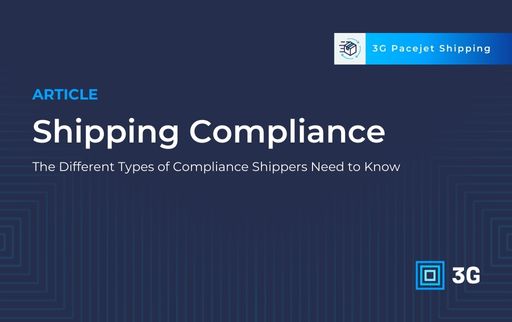Blog
The Different Types of Compliance Shippers Need to Know

In the world of shipping, the term “compliance” surfaces repeatedly. It can be both daunting confusing, given its numerous meanings and serious implications. When moving goods, what does it mean to be in (or out of) “compliance” and who are you complying with?
If you are a manufacturer, distributor, or retailer, these are probably questions you’ve been confronted with and may still be working through. At Pacejet, we help customers maintain multiple forms of compliance and wanted to help eliminate some of the confusion around the topic. Here, we’ll be discussing three main types of shipping-related compliance.
Retail Compliance
Compliance with: Trading partners
Most impacted: Omnichannel businesses at the early stages of big retail relationships
Large retailers (think Amazon, Walmart, or Target) have very strict rules around how shipments are labeled, what information must be on those labels and packing slips, and how the information is formatted. Each has different requirements and inaccuracies can result in costly penalties. Retail compliance is complicated, but there are ways to streamline and automate all of the requirements.
Want to learn more about retail compliance?
Download the recording to watch our panel discussion with Acumatica and SPS Commerce where we dive into the world of retail compliance and share how you can prepare for what’s next with comprehensive retail compliance.


Customs Compliance
Compliance With: U.S. & Foreign Customs Authorities
Most impacted: Those serving international buyers with goods shipped from North America
Export and customs documentation can be lengthy and confusing, especially when different types of goods, with different destinations, have widely varying requirements. Mistakes or omissions in such documents can seriously delay shipments, and could even result in civil and criminal penalties. Because of their importance, many businesses have staff dedicated to filling out these forms.
Hazmat Compliance
Compliance With: U.S. Department of Transportation
Most impacted: Anyone shipping goods deemed “hazardous” or “dangerous”
The U.S. DOT has very specific definitions of what is considered hazardous and dangerous and the associated regulations are lengthy, strict, and complex. Shipping such goods, which includes everyday items like lithium batteries, means complying with all associated regulations including how they are packed, labeled, and handled. Noncompliance can result in substantial financial penalties, and, more importantly, serious injuries, environmental contamination, or worse.
What Now?
Compliance can be a difficult topic to understand, and even more difficult to enact without software to help automate the process. In this blog series, we’ll be taking a deeper look at each type of compliance, and how to handle it.
To learn more about the various ways Pacejet can help you untangle the complex world of compliance, reach out to us today!


